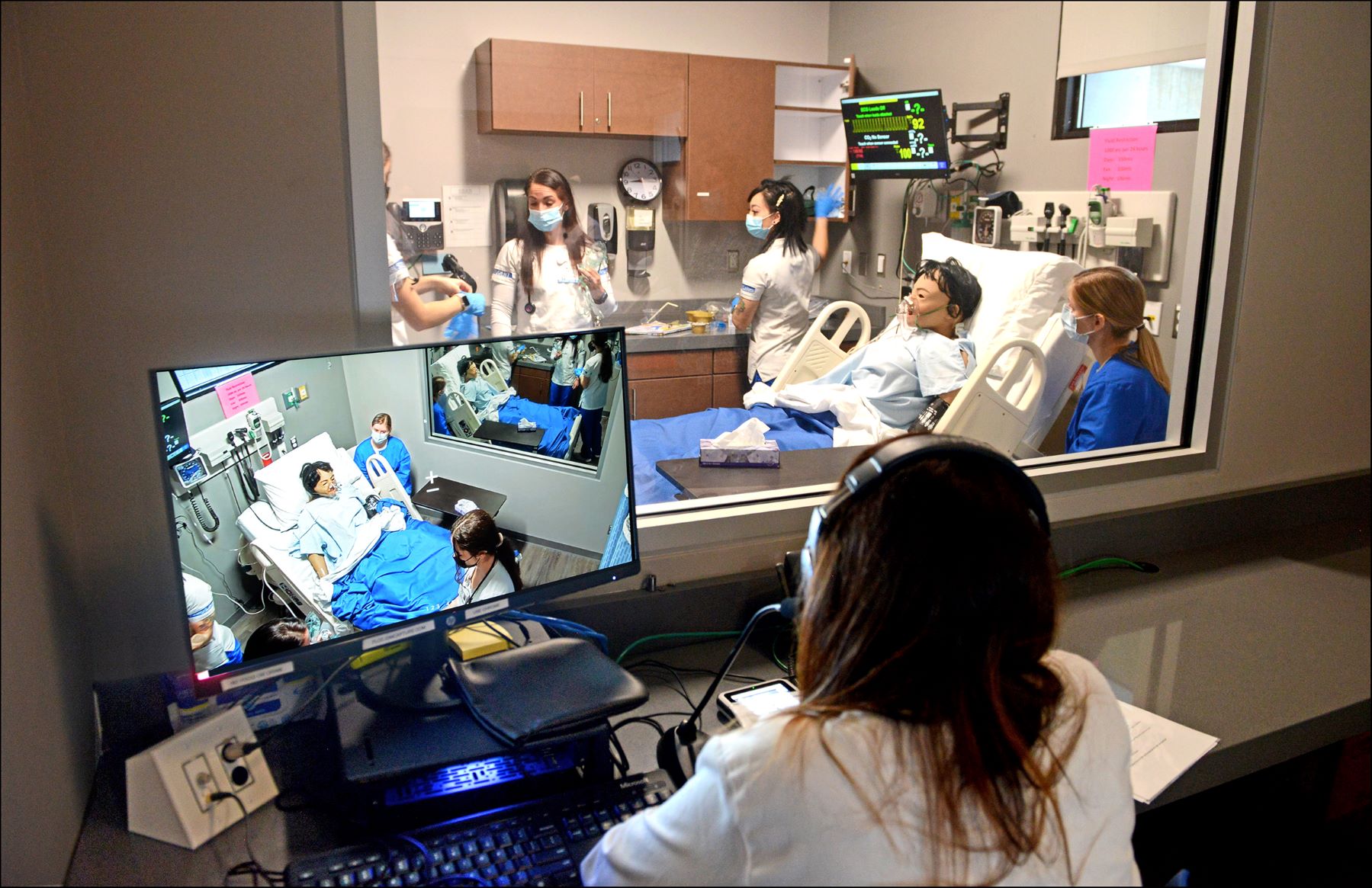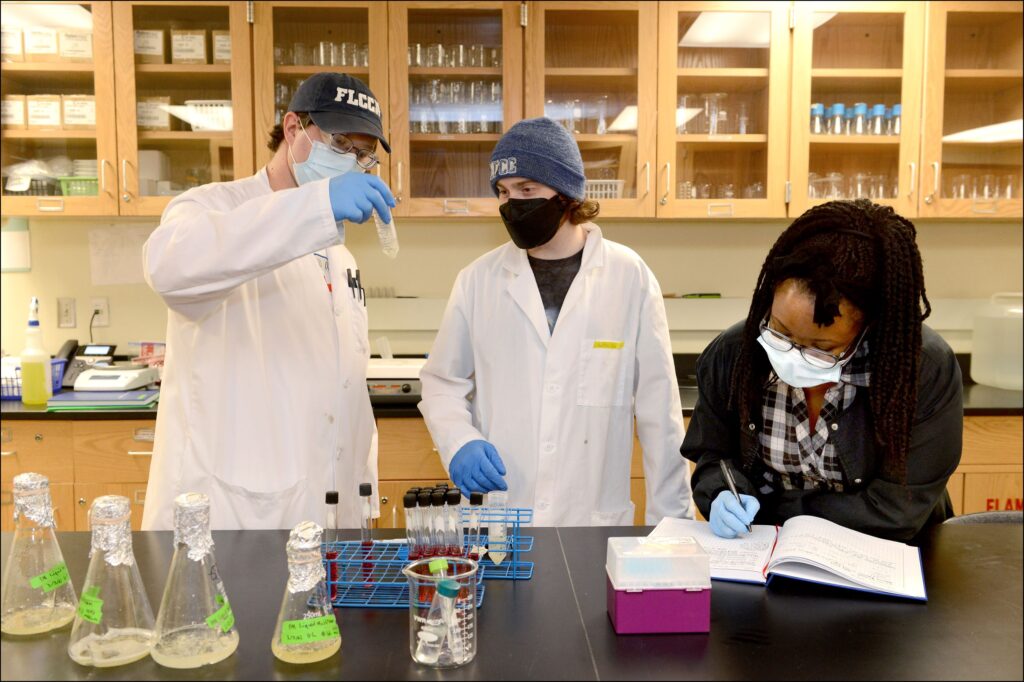
The Finger Lakes Community College Board of Trustees recognized a group of five current and former students who were chosen to present their research on the cultivation of mushroom sugars for a national conference in April.
The research project is part of an 18-month collaboration between FLCC and Empire Medicinals, a Henrietta company that sells mushrooms and mushroom-blended meats. It sought the college’s help for basic research that could lead to the extraction and commercialization of mushroom sugars as a food supplement.
Three of the students, who have since graduated, and two current students represented FLCC at the National Conference on Undergraduate Research (NCUR), an annual event that involves 3,200 students, faculty, and administrators.
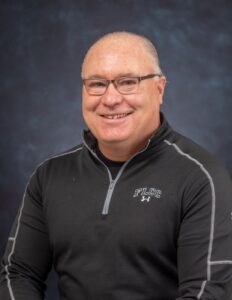
“NCUR is the largest showcase in the country of undergraduate research, so it’s all institution types,” James Hewlett of Webster, the professor leading the project, told the board at its May 4 meeting. ”It’s not a given. You have to apply, and the applications go through some pretty intense scientific review before you’re accepted to present at this conference. It’s a huge deal to actually get accepted, and it becomes a published abstract.”
Presenters were Matthew Brooks, a 2021 biotechnology graduate from Canandaigua, Demetrice Garcia, a 2021 biotechnology graduate from Newark, and Philip Simmons of Keuka Park, who has a 2021 associate degree in biotechnology and a 2020 associate degree in viticulture and wine technology.
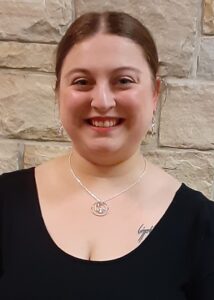
Current students Leila Doerrer, a biotechnology major from Honeoye Falls, and Chelsea Patterson, an engineering science major from Farmington, also contributed to the development of a poster summarizing the research for the conference.
“It’s a very fascinating study, and I’m very happy to have been a part of it,” said Patterson. “It’s definitely opened my eyes to the detail that research takes, and I absolutely love everything about it.”
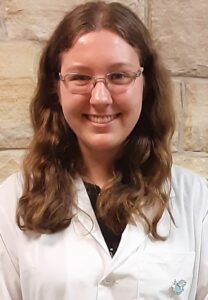
“I have to be honest. This is the most valuable experience I’ve probably ever had in my entire life,” said Doerrer. “I’ve learned so much. I can run a whole bunch of machines, like bioreactors. I’ve learned how to operate an autoclave.”
Hewlett, who has been recognized as a State University of New York distinguished service professor for his work promoting student research, directs the students with adjunct instructor Sarad Parekh of Pittsford and instructional specialist Jessica Halliley of Rochester.
The goal of the project is to determine the conditions that promote the fastest growth of mushroom fibers, called mycelia, and the bioactive compounds these fibers produce.
Mushrooms are well established as a health food; they are low in calories and high in fiber, protein and antioxidants. Sugars they produce, called beta-glucans, are studied for their potential to boost the immune system, lower cholesterol and fight cancer. Isolating the sugars requires growing the mycelia in a broth-like medium, separating the liquids and solids, then filtering the liquid.
The students grew two strains of mushrooms in two different broths – one with glucose and another with lactose. One of the strains produced the highest yield in lactose, a sugar found in milk.
Unlike a carefully controlled lab exercise, researchers can run into problems, Brooks noted.
“If something goes wrong, like one of our batches gets contaminated, it’s not like the professors know the answer right away. It’s a genuine mystery,” he said, adding that it takes collaboration to diagnose the problem.
Trustee George Cushman praised the research program for the range of skills it fosters.
“What I heard … was that you learned a lot of transferable skills, and it’s not necessarily the things that go on a resume all the time, but it’s really what the employers need,” he said. “I heard about working together as a team, solving problems – all these things don’t necessarily translate on a resume, but they really are essential skills.”
Hewlett said the college is seeking more research projects, particularly among small startups like Empire Medicinals that lack research and development capacity. “They need help and we need projects,” he said.


